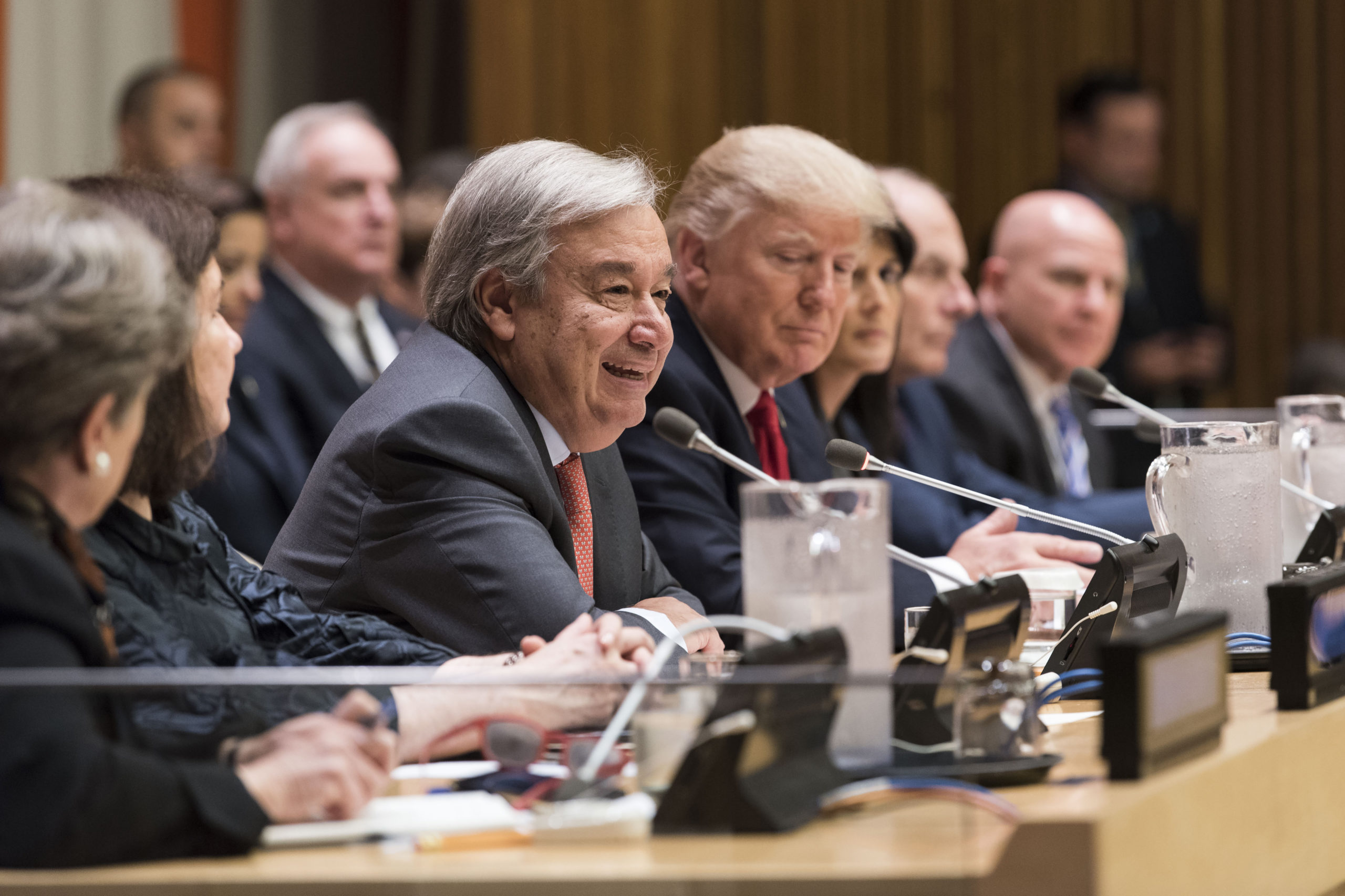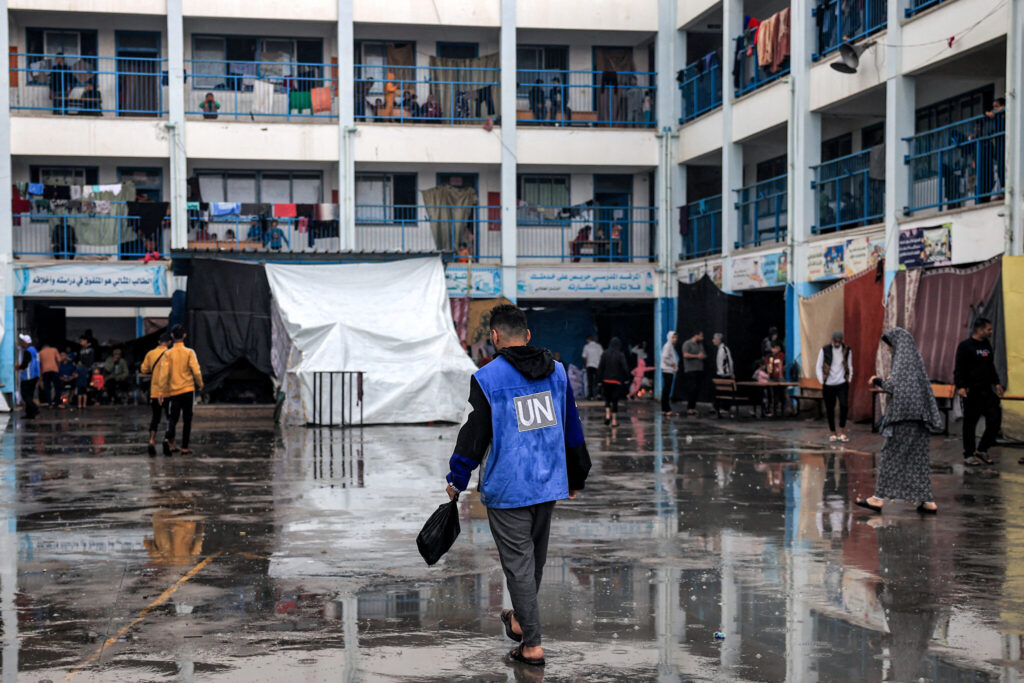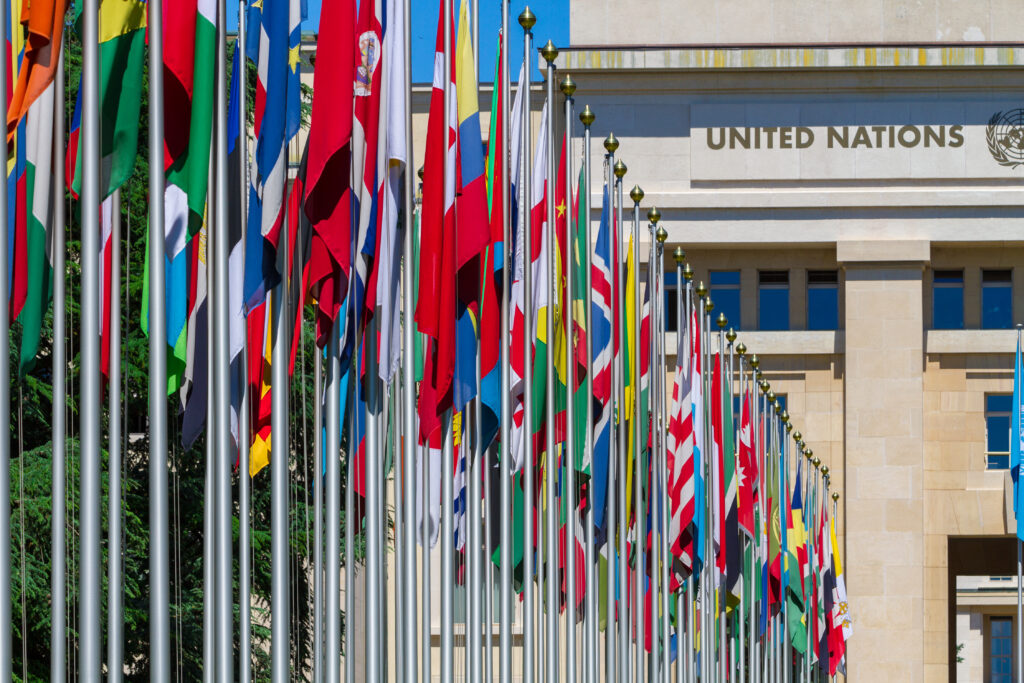By Jordie Hannum
Today UN Secretary-General António Guterres and President Donald Trump will convene at the White House to “reaffirm the commitment of the United States to improving the efficiency and effectiveness of the United Nations.” Among the topics likely to be discussed: North Korea; Iran; and UN system reform.
While news stories have covered much about the U.S. side of these issues, here are a few things you might not know about what the UN has been doing.
North Korea
As of today, President Trump and North Korean Dictator Kim Jong-Un will meet in Singapore on June 12 to discuss two hot-button issues: peace and denuclearization.
In the last twelve months, the UN Security Council (UNSC) has significantly ratcheted up sanctions against North Korea over its rapidly advancing nuclear program. Specifically, the Security Council adopted a series of U.S.-backed resolutions targeting the central pillars of North Korea’s economy. The measures include banning Pyongyang from exporting coal, iron, textiles, seafood, lead, and agricultural products; cutting imports of refined petroleum by 89 percent; requiring countries to expel North Korean guest workers, a critical source of hard currency for the regime; and compelling other countries to seize and impound ships caught smuggling prohibited items to and from North Korea.
As U.S. Ambassador to the UN Nikki Haley has said, these measures represent “an unprecedented response” to North Korea’s defiance of the international community, and helped set the stage for the U.S.-North Korea meeting.
Iran & Verification
Last week President Trump decided to fully pull out of the Iran deal, commonly known as the Joint Comprehensive Plan of Action (JCPOA). Prior to the signing of JCPOA in 2015, the UN International Atomic Energy Agency (IAEA) played a critical role in monitoring Iran’s nuclear activities, providing the impetus and rationale for an increasingly robust set of multilateral and bilateral sanctions that successfully pressured Iran to the negotiating table. (As a reminder, the UN’s multilateral sanctions led to what former Iranian President Ahmadinejad called “the heaviest economic onslaught on a nation in history.”)
Despite the administration’s confounding decision to withdraw from the JCPOA (which created the most robust inspections protocol for the IAEA anywhere in the world – and if you doubt us, read this informative piece last week from the Washington Post), the agency could still be called upon to play a key role in providing the international community with information on Iran’s nuclear activities.
With respect to North Korea, depending on how negotiations between President Trump and Kim Jong-un shake out next month, the agency could also be asked to play a verification role there.
Reform
Nearly from the moment he assumed his role, Secretary-General Guterres has made UN reform a key priority. Ambassador Haley and President Trump have echoed his calls to make the UN more efficient and effective.
Eighteen months into his term, Guterres has already delivered on his promise. The budget for the current cycle is a reduction of $285 million from the final 2016-2017 appropriation. Combined with cuts in the previous operating budget, these cost savings total nearly half a billion dollars. The UN has also eliminated hundreds of job posts and reduced the cost per peacekeeper by almost 20 percent. These reforms are not only a boon to American taxpayers, but they also represent a mutual priority of both Trump and Guterres.
Moving forward, the Secretary-General has promised major reforms around: the development system (UN working in developing countries); peace and security operations; and management. (Much more to come on this front in the coming days.) But it is worth pointing out that this just one part of his reform agenda. The Secretary-General is modernizing UN operations. For the first time in the organization’s history, there is full gender parity in the UN’s senior leadership; of the 44 members in the Senior Management Group, 23 are women. The Secretary-General has taken also steps to protect whistleblowers and punish those who commit sexual exploitation and abuse.
In September 2017, President Trump said at the UN General Assembly, “we pledge to be partners in your work, and I am confident that if we work together and champion truly bold reforms, the United Nations will emerge as a stronger, more effective, more just, and greater force for peace and harmony in the world.”
The UN is doing its part – will the United States follow suit?




